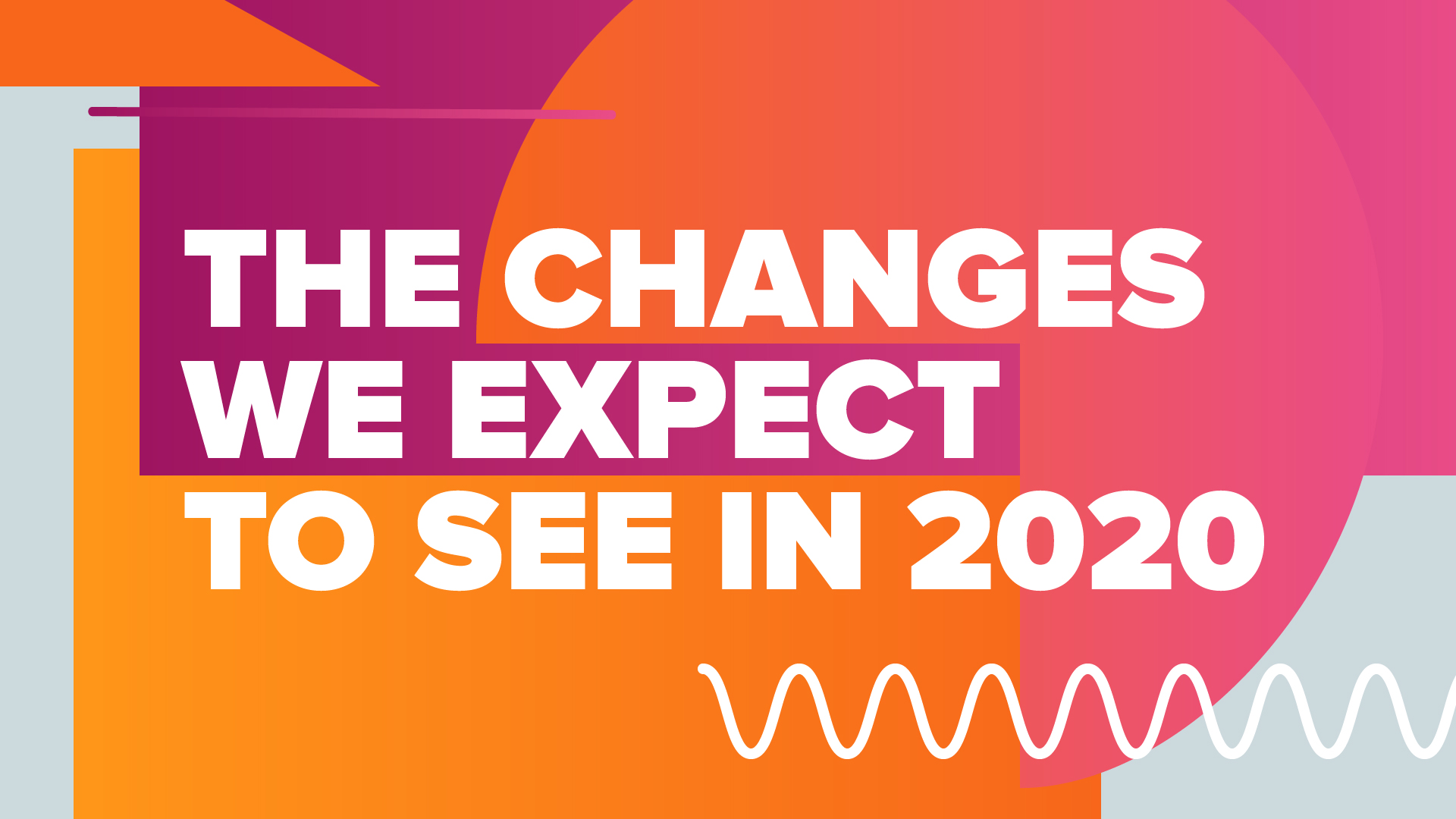Insights
The Changes We Expect To See In 2020

With 2020 well underway, we have been thinking about the year ahead and the changes we expect to see in the employee experience and engagement space. After many conversations with clients and brainstorming sessions, we have managed to narrow this down to four key trends:
Agile working
Although flexible working policies are increasingly becoming the norm, these have historically been introduced for the benefit of the employee, centring around increased time and place flexibility to create a better work/life balance. 2020 will see organisations shifting from ‘flexible working’ to ‘agile working’ – offering complete flexibility in exchange for improved business performance.
The focus will be on output rather than activity, as employees are encouraged to work where, when and how they want in order to carry out a particular task most effectively. This will be supported by evolving tools and technologies, and changes to the physical workplace, to enable employees to choose an environment that best supports their needs.
The traditional hierarchy will be replaced by a flatter structure comprised of a network of tailor-made teams allocated to a specific project or initiative. These teams will be empowered to operate with greater autonomy, enabling quicker responses to challenges and opportunities.
But with only 10% of businesses having successfully completed an organisational-agility transformation,[1] being a truly agile organisation requires more than just a systems change – an organisational culture that trusts and empowers its people will be key to reaping the benefits of this new way of working.
Artificial Intelligence
It is no surprise that AI in the workplace is expected to increase, with 37% of businesses having already implemented AI in some shape or form.[2] However, this should not be seen as a negative, but rather as an opportunity. As machines take over the mundane and repetitive tasks, employees will be able to focus on more meaningful, complex and creative work.
Traditional working models and organisational structures will, as a result, need to change. Businesses will need to upskill employees as work becomes more varied and a single skill set is no longer enough.
Although the introduction of AI will see processes and decision-making becoming quicker, more consistent and fairer, businesses must not forget the value of creativity and emotional intelligence which can only be brought by human workers. As a result, the implementation of machines in the workplace will, ironically, ramp up the focus on employee engagement.
Data
Data is one of the most powerful tools an organisation can use to understand both its customers and employees. However, many are still struggling to act on it.
With 69% of organisations building systems to analyse worker-related data, businesses are starting to take a more proactive approach towards data.[3] But the ability to work with and interpret this data to form actionable insights will be key. This will lead to an increase in funding for data-centric employee training and recruitment as businesses take steps to future-proof themselves.
As AI continues to be implemented within organisations, the quantity of data available for analysis will increase infinitely, making it possible to identify trends and patterns in areas such as employee satisfaction, absenteeism and turnover.
This data will provide businesses with insights in to what they are doing well or not so well, thereby enabling them to invest their resources in what matters the most to their people, rather than making decisions based on the assumptions of HR and leadership.
Organisational empathy
With 93% of employees revealing that they are more likely to stay with an empathetic employer,[4] creating organisational empathy will be key to creating a business that people want to work for.
As agile working and AI become the norm, it will be vital to ensure the human touch remains. This will see leaders and managers taking more time to check in with their teams, listening to what they have to say, and connecting on a more human level.
Employees will expect a more personalised relationship with their managers that is centred around what matters to them, which will vary from a flexible benefits package to tailored performance reviews.
By building more personal connections, businesses will be able to understand what it really feels like to be an employee and will be able to use these insights to create an organisation that is truly people-centric.
Although 2020 will bring changes to ways of working, workplace design and the use of technology at work, it is clear that the focus on employee engagement is showing no signs of fading. In fact, organisations will rely on their employees more than ever to build a business that is fit for the future.
We’d love to hear about any trends you’ve noticed. Give us a call!